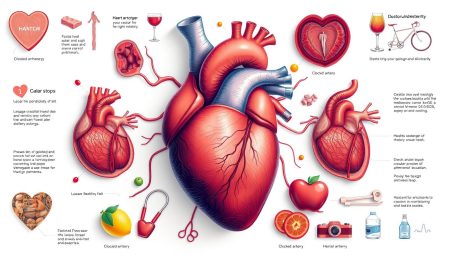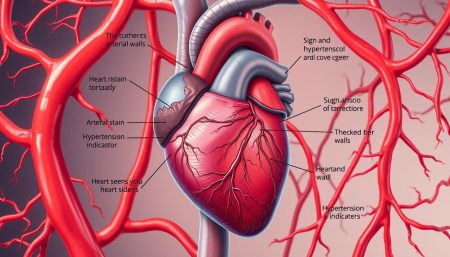Beta blocker medicine is key for keeping the heart healthy and managing heart conditions. Many people wonder, what is beta blocker medicine. This guide aims to clear up the mystery around these drugs, their uses, and the beta blockers benefits they offer.
Learning about beta blockers is more than just knowing about a type of medicine. It’s about seeing how they play a big role in many treatments. This guide will cover everything about beta blockers, from how they work to how to use them wisely. It’s for patients looking to understand more and caregivers wanting to improve treatment plans. The information here will help you and support better heart health.
Introduction to Beta Blockers
Beta blockers are a type of medicine mainly used for heart health. They play a big role in today’s medicine. Knowing how they work and their uses helps doctors treat many health problems.
These medicines are used for many things. They help control high blood pressure, prevent heart attacks, and fix irregular heartbeats. They do this by blocking adrenaline’s effects on the body’s beta receptors. This action lowers the heart rate and blood pressure.
- Reduction of heart rate
- Decrease in blood pressure
- Improvement of blood flow
This introduction prepares us for a closer look at how beta blockers work and their uses. We’ll see how they are key in treating heart diseases.
What Is Beta Blocker Medicine
Many people wonder about beta blocker medicine and its role in healthcare. Beta blockers, or beta-adrenergic blocking agents, are mainly used to control irregular heartbeats. They also help protect the heart from a second heart attack after the first one.
Definition of Beta Blockers
Beta blockers are medicines that block the effects of adrenaline, a hormone related to stress. Adrenaline binds with beta-receptors on nerves, causing the heart to beat faster. Beta blockers stop this binding, slowing down the heart rate and lowering blood pressure. They also help reduce anxiety.
The History of Beta Blockers
The discovery of beta blockers in the 1960s by Sir James Black has greatly changed heart disease treatment. These medicines started as simple chemicals and have become key in managing heart health issues and more.
This deep dive into their history helps us understand beta blocker medicine today. It shows how medical science can turn hypotheses into life-saving treatments.
Beta Blockers Mechanism of Action
Beta blockers help manage heart health by controlling heart rate and blood pressure. They are key in treating heart conditions by blocking adrenaline’s effects.
Understanding How Beta Blockers Affect the Heart
Beta blockers block beta-adrenergic receptors in the heart and arteries. Adrenaline, our stress response, usually makes our heart rate and blood pressure go up. Beta blockers stop adrenaline from binding, which slows the heart rate and lowers blood pressure.
The Effects of Beta Blockers on Blood Pressure
Beta blockers also help lower blood pressure. They do this by reducing how much the heart pumps and by stopping the kidneys from releasing renin. This helps prevent high blood pressure problems.
Beta blockers do more than just slow the heart rate. They improve heart function and overall blood flow in a big way.
| Function | Effect on Heart | Effect on Blood Pressure |
|---|---|---|
| Adrenaline Blockage | Decreases heart rate | Reduces stress on arteries |
| Vascular Resistance | Decreases force of contractions | Widening of blood vessels |
| Renin Inhibition | N/A | Lowers plasma renin activity |
Knowing how beta blockers work helps both patients and doctors. It shows why these drugs are vital for heart health, mainly in treating high blood pressure and stress-related heart issues.
Common Beta Blockers Explained
Exploring cardiovascular medication, it’s key to know the beta blockers names and their uses. This part covers some top beta blockers and their beta blockers uses.

Beta blockers are key in treating heart issues like high blood pressure and irregular heartbeats. They block adrenaline’s effects on the heart, making it work less hard. This lowers blood pressure, helping those with heart problems.
| Generic Name | Brand Name | Common Uses |
|---|---|---|
| Atenolol | Tenormin | High blood pressure, angina, heart attack prevention |
| Metoprolol | Lopressor, Toprol-XL | High blood pressure, chest pain, heart failure |
| Propranolol | Inderal, Inderal LA | High blood pressure, irregular heartbeats, shaking (tremors) |
Choosing beta blockers for treatment requires careful thought. They help manage heart rhythms and prevent heart attacks. Picking the right one is key for best results and fewer side effects.
- Atenolol (Tenormin) is often used for patients with high blood pressure and after a first heart attack to prevent another.
- Metoprolol (Lopressor, Toprol-XL) can help reduce the symptoms of acute heart attacks and help treat heart failure.
- Propranolol (Inderal, Inderal LA), beside its use in hypertension, is also prescribed for preventing migraine headaches and treating essential tremor.
Knowing the details of each beta blocker, including names and uses, helps make better choices for heart health.
Different Types of Beta Blockers and Their Uses
It’s important for doctors and patients to know about the different beta blockers. We’ll look at the main differences between selective and non-selective beta blockers. We’ll also talk about how they help with heart problems.
Selective vs. Non-Selective Beta Blockers
Selective beta blockers mainly affect the heart. They block the β1 adrenergic receptors. These are good for people with breathing problems because they don’t make breathing harder. Examples include Metoprolol and Atenolol.
Non-selective beta blockers work on both β1 and β2 receptors. This means they affect the heart, lungs, and blood vessels. They’re better for some heart conditions but can be risky for people with asthma. Propranolol and Sotalol are examples.
Uses in Treating Cardiovascular Conditions
Both types of beta blockers are key in treating heart issues. They’re very useful in heart medicine.
- Hypertension: Beta blockers lower blood pressure by slowing the heart rate and reducing muscle contraction.
- Angina: They help by reducing the heart’s need for oxygen, easing chest pain.
- Arrhythmias: They help control irregular heartbeats.
- Heart Failure: Some beta blockers can make the heart work better and last longer in patients with heart failure.
- Post-MI: Taking beta blockers long-term after a heart attack helps prevent more heart problems.
Choosing between selective and non-selective beta blockers depends on the patient’s health and history. Doctors make this choice based on what’s best for each patient.
Examining the Benefits of Beta Blockers
Beta blockers have many benefits, mainly for heart health. They help control high blood pressure and prevent irregular heartbeats. They also reduce stress on the heart.
Beta blockers work by blocking adrenaline’s effects. This lowers the heart rate and blood pressure. Over time, this can lower the risk of serious heart problems like heart failure or stroke.
- Reduction in Atrial Fibrillation: Patients with irregular heartbeats see big improvements. Beta blockers help make heart rhythms regular.
- Decrease in Heart Failure Symptoms: Beta blockers help those with heart failure. They reduce symptoms and can improve survival chances.
- Protection Against Heart Complications: After a heart attack, beta blockers are key. They help prevent more heart problems.
It’s clear how important beta blockers are for heart health. They not only ease symptoms but also protect against future heart issues. This makes them a vital part of heart disease treatment.
Exploring Beta Blockers Dosage Guidelines
Starting to use beta blockers means learning about the right dosage for you. It’s all about finding the right amount to help you without causing harm. This is key to getting the most out of your treatment.
Dosage Adjustments for Specific Conditions
For heart problems, the right beta blocker dose is very important. People with serious heart rhythm issues might need a different dose than those with high blood pressure. The dose depends on how serious the condition is and how it changes over time.
Doctors also look at how well your kidneys and liver work when they prescribe beta blockers. If these organs aren’t working right, the drug might not be broken down and removed from your body as it should. This means the dose might need to be changed. Websites like healthwith.com talk about how important it is to get the right dose for your heart health.
Managing Dosage Over Time
Managing your beta blocker dose is an ongoing process. It involves checking how well the medication is working and making changes as needed. You usually start with a small dose and slowly increase it until you get the best results.
It’s important to see your doctor regularly to check how the medication is working for you. This helps avoid taking too little or too much of the drug. Both can be bad for your health.
| Condition | Initial Dosage | Adjusted Dosage |
|---|---|---|
| Hypertension | 50 mg daily | 100 mg daily after 2 weeks |
| Heart Failure | 12.5 mg daily | 25 mg twice a day after 1 week |
| Arrhythmia | 10 mg daily | 10 mg twice a day after 3 days |
Finding the right beta blocker dose is key to treating heart problems well. Being able to adjust the dose as needed means you can get treatment that really works for you. This helps improve your health over time.
Understanding Beta Blockers Side Effects
Beta blockers help manage heart conditions but can have side effects. This section will cover common and rare side effects. We’ll explain why they happen and how to lessen their impact.
The beta blockers side effects can vary from mild to severe. They can affect different parts of the body. Knowing about these effects is key to managing them well.
- Fatigue and dizziness
- Nausea and abdominal discomfort
- Slow heartbeat and possible heart block
- Sleep disturbances, including insomnia
- Cold hands and feet due to reduced blood flow
If you’re experiencing these side effects, talk to your doctor. They might need to adjust your dosage or medication.
| Side Effect | Commonality | Potential Impact |
|---|---|---|
| Fatigue | Common | Can affect daily activities and energy levels |
| Dizziness | Common | Might be hazardous when operating vehicles or heavy machinery |
| Nausea | Less Common | Mild to moderate discomfort that may require dietary adjustments |
| Depression | Less Common | Required mental health evaluation and management |
| Asthmatic Symptoms | Rare | Potentially serious respiratory issues, immediate medical attention needed |
Long-term use of beta blockers can cause weight gain and affect blood sugar levels. Always talk to your doctor about the beta blockers side effects. This ensures the benefits are worth the risks.
Monitoring Beta Blockers Interactions
It’s vital to watch beta blockers interactions to keep patients safe and help treatments work better. These drugs can mix with many other medicines and lifestyle choices. Knowing and handling these interactions is key.
Common Drug Interactions with Beta Blockers
Patients taking beta blockers need to know about drug interactions. Some medicines can make beta blockers work too much or too little. For example, mixing beta blockers with asthma drugs can make breathing problems worse. Anti-inflammatory drugs might also make beta blockers less effective against high blood pressure.
| Interaction Type | Drugs Involved | Effect on Patient |
|---|---|---|
| Potentiation of Effects | Anti-hypertensive agents | May cause excessively low blood pressure |
| Reduction in Efficacy | NSAIDs (e.g., ibuprofen) | Can decrease the hypertension-controlling effects |
| Risk of Adverse Reactions | Asthma drugs | Potential aggravation of asthma symptoms |
Food and Lifestyle Interactions
Some foods and lifestyle considerations can change how beta blockers work. Eating a lot of processed foods or too much salt can make these drugs less effective. This can hurt how well they treat high blood pressure.
- Caffeine: Can increase heart rate and counteract the calming effect of beta blockers.
- Alcohol: May exacerbate beta blockers’ blood pressure-lowering effects, leading to dizziness or fainting.
- Tobacco: Smoking can interfere with the efficacy of the medication and lead to cardiovascular complications.
Patients on beta blockers should talk to their doctors about their diet and lifestyle. This helps make the treatment fit their needs better. It also helps avoid dangerous interactions and makes the drugs work better.
Understanding beta blockers interactions, including drug interactions and lifestyle considerations, is important. Patients and doctors can then work together better. This leads to better health outcomes for everyone.
Addressing Beta Blockers Precautions
When looking at beta blockers precautions for heart health management, it’s key to know the specific needs and risks. These medications are used for many heart conditions. It’s important to weigh the benefits against the risks carefully.
People with asthma, diabetes, or severe allergies should talk to their doctors first. Beta blockers might not be safe for them. Also, how beta blockers work with other medicines can be tricky. Doctors need to check all the medicines a patient is taking.
- Review current medications: To avoid bad interactions that could harm heart health.
- Assess personal health conditions: Like asthma or diabetes, which might change how beta blockers work.
- Regular physician consultations: Important for watching how beta blockers affect the heart and making changes if needed.
The main goal of using beta blockers is to improve heart health. It’s important for patients to talk openly with their doctors. They should report any side effects or worries right away.

| Condition | Precaution | Recommendation |
|---|---|---|
| Asthma | Potential respiratory complications | Use cardioselective beta blockers |
| Diabetes | Masking signs of low blood sugar | Monitor blood glucose levels closely |
| Chronic Obstructive Pulmonary Disease (COPD) | Risk of bronchospasm | Consult specialist before use |
Knowing the beta blockers precautions and managing interactions helps keep the heart healthy. It also makes treatment safer and more effective. Always follow professional advice when managing heart health with beta blockers. This ensures treatment fits each patient’s needs.
How to Safely Start and Stop Beta Blockers
Beta blockers therapy is key in managing heart conditions. It’s important to know how to start and stop beta blockers safely. This section will cover the medical guidelines for safe and effective treatment.
Guidelines for Starting Beta Blocker Therapy
Starting beta blockers therapy needs careful thought. Doctors look at the patient’s health history and current condition. They start with a low dose to see how the body reacts, then increase it as needed.
- Assessment of patient’s health
- Consideration of drug interactions
- Initial low dose administration
Tapering Off and Discontinuation Protocols
Stopping beta blockers slowly is key to avoid bad side effects. Doctors suggest a slow taper, reducing the dose a little at a time over weeks. Patients should watch for any changes in symptoms and tell their doctor.
- Consultation with a healthcare professional
- Gradual reduction in dosage
- Close monitoring of symptoms
| Phase | Dosage Adjustment | Duration |
|---|---|---|
| Initial | Low dose | 1-2 weeks |
| Maintenance | Adjusted as needed | Until therapeutic goals are met |
| Tapering Off | Reduce dose by 10-20% | Every 1-2 weeks |
Patient Experiences with Beta Blocker Therapy
Real-life stories show the beta blockers benefits for those taking them. Many beta blocker patient experiences share how their lives improved. Each story shows how treatment affects different people in unique ways.
Positive Outcomes Noted by Patients:
- Less frequent and severe migraines
- Heart rate gets better, and palpitations happen less
- They can do more physical activities without getting too tired
Challenges Faced:
- Some felt dizzy and tired at first, but these side effects went away.
- They had to change their dosage to find the right balance.
| Benefit | Patient Feedback |
|---|---|
| Lower Blood Pressure | “My blood pressure has stabilized, and I feel more in control of my health.” |
| Improved Heart Function | “Monitoring with my doctor showed better heart function after starting beta blockers.” |
| Reduced Anxiety | “I’ve experienced significant relief in anxiety, helping me return to daily activities with confidence.” |

Feedback from people taking beta blockers is very helpful. It shows the beta blockers benefits in managing health every day. These stories also stress the need for personalized care to get the best results for each person.
Future of Beta Blocker Medications
The future of beta blockers looks bright for heart health. Doctors and patients are excited about new advancements. New research is leading to beta blockers with fewer side effects and better results, thanks to genetic insights.
These drugs are being studied for more uses, not just for heart issues. This could help people with other health problems too. It’s a big step forward in medical science.
New beta blockers are being made to work better and have fewer side effects. They aim to target heart receptors more precisely. This could lead to better treatments for heart failure and other heart problems.
Studies are also looking into using beta blockers for other health issues. This could open up new ways to help patients. Clinical trials are underway to make these medications safer and more effective.
In short, beta blockers are getting a makeover for better heart health. Researchers are working hard to create personalized treatments. Their efforts show a bright future for beta blockers in improving patient care.
FAQ
Q: What is beta blocker medicine?
A: Beta blocker medicine is a type of drug used for heart health. It blocks the hormone epinephrine, or adrenaline. This action lowers heart rate and blood pressure, helping with heart conditions.
Q: How do beta blockers benefit patients with heart conditions?
A: Beta blockers help heart patients by slowing the heart rate and lowering blood pressure. They also reduce oxygen demand and prevent abnormal heart rhythms. This makes them great for heart health and managing conditions like heart failure and high blood pressure.
Q: What is the mechanism of action of beta blockers?
A: Beta blockers work by blocking beta-adrenergic receptors in the heart and blood vessels. This stops epinephrine and noradrenaline from increasing heart rate and contractility. As a result, they reduce heart stress and lower blood pressure.
Q: What are the different types of beta blockers and their uses?
A: There are two main types: selective and non-selective beta blockers. Selective blockers, like atenolol and metoprolol, target heart beta-1 receptors. They’re good for patients with breathing issues because they have fewer side effects. Non-selective blockers, like propranolol and nadolol, block both types of receptors. They’re used for heart conditions, migraines, and reducing liver pressure.
Q: Can you explain common drug and food interactions with beta blockers?
A: Some drugs, like antiarrhythmics and antihypertensives, can make beta blockers too strong. NSAIDs and corticosteroids might make them less effective. Caffeine and alcohol can also affect their blood pressure-lowering effect. Always talk to a doctor about these interactions.
Q: What are the guidelines for starting beta blocker therapy?
A: Starting beta blocker therapy needs a doctor’s guidance. They’ll start with a low dose and increase it as needed. The treatment plan is tailored to each patient’s health and condition.
Q: What are some common side effects of beta blockers?
A: Side effects of beta blockers include fatigue, cold hands and feet, and a slow heartbeat. Some people might feel dizzy, have trouble breathing, or have trouble sleeping. Always tell your doctor about any side effects.
Q: What precautions should patients take when using beta blockers?
A: Patients should not stop beta blockers suddenly. This can cause dangerous heart problems. Tell your doctor about all medications, health conditions, and if you’re pregnant or planning to be. Regular check-ups with your doctor are important.
Q: What are the dosage adjustments for beta blockers for specific conditions?
A: Dosage adjustments depend on the condition, how well the medication works, and overall health. For example, heart failure patients might need different doses than those with high blood pressure. Always follow your doctor’s advice for safe and effective treatment.
Q: How should one safely taper off beta blocker medication?
A: Tapering off beta blockers should always be done with a doctor’s help. They’ll gradually lower the dose to prevent sudden withdrawal effects. This helps your body adjust safely.


















